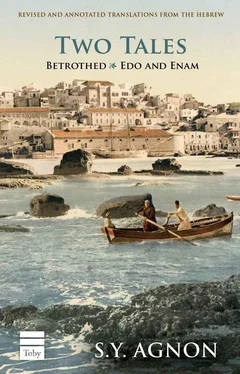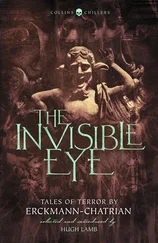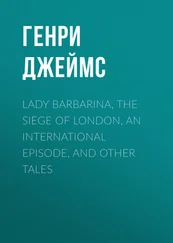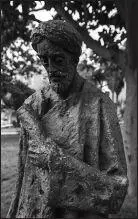
Statue of Ibn Gabirol in Malaga, Spain
109. Mandate government / The British Mandate over Palestine administered civil affairs from 1920–1948.
109. Gederah / A town in central Israel.
111. Your happiness is where you are not / Closing line to Mordechai Zvi Maneh’s 1884 poem HaNoded (“The Wanderer”). Maneh (1859–86) was a lyrical Hebrew poet of the First Aliyah period, who wrote longingly for the Land of Israel, although he died of tuberculosis before he could leave his native town of Radoshkovich (in today’s Belarus). My thanks to Dr. Shuli Marom for help in identifying this line.
111. Gamzu / The character’s name is likely a reference to the 1st century long-suffering Rabbi Nachum Ish-Gamzu, whose response to the many calamities which befell him (including blindness, similar to our character’s loss of one eye), “ gam-zu le-tovah ” (“This, too, is for the best”) became him moniker (Ta’anit 21a).
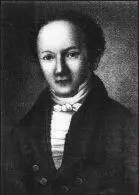
Wilhelm Gesenius
112. Gesenius’ textbook / Wilhelm Gesenius (1786–1842), a German orientalist and Biblical critic, was the author of multiple lexicons and grammar books concerning Biblical Hebrew.
112. Twelve pounds / The Palestinian Pound ( lira ) was the currency in use during the British Mandate, linked in value to the British Pound Sterling, and then maintained in the early years of the State of Israel. Adjusted for inflation to 2011, twelve lirot would have been worth about $900.
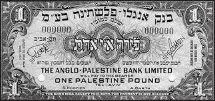
One Palestine Pound
113. Going to the south… / Ecclesiastes 1:6.
114. Seven locks… seven keys / Likely based on idea of seven keys to the seven gates of the Temple courtyard; Tosefta Shekalim 2:15.
114. Yiddal, yiddal, yiddal, vah, pah, mah / The enigmatic lyrics of Gemulah’s song have remained a mystery for critics of this story. Tochner interprets the “ Yiddal ” song as a acronymic hint to the concluding phrase in Song of Songs 4:16: “Awake, O north wind, and come, O south wind; blow upon my garden, that the spices thereof may flow out; let my beloved come to his garden ( Yavo Dodi Le-gano ) and eat his sweet fruit ( Ve-yokhal Peri Megadav ) — with the word for “garden” (“ gano ”) echoing the meaning and root of the name Dr. Ginat.
114. Gemulah / Cf. Rosh Hashanah 26a, in which R. Akiva interprets the word “ gemulah ” as connoting a woman “separated from her husband”. The kabbalistic-allegorical interpretation of the story points out the resonance between Gemulah and “ gemilut hessed ” (lit. performance of acts of kindness) which is kabbalistically identified by Tikkunei Zohar (114b) with the Shekhinah (God’s divine presence).
115. Dr. Rechnitz / The protagonist of Agnon’s novella “Betrothed”, which opens this volume.
117. Hakham / Hebrew for Sage, as in a Rabbinic Sage, but here can also mean a scholar or academic.
118. Nature of man has changed / An idea advanced by the early medieval rabbis, but evidenced already in the Talmud.
118. All depends upon one’s star / Mo’ed Katan 28a.
118. Our star makes us wise, or makes us rich / Shabbat 156a.
118. Ibn Ezra / R. Abraham Ibn Ezra (Spain, 1089–1164), was a preeminent medieval Biblical commentator, philosopher, grammarian, and poet. The statement quoted here appears in the Commentary to Exodus 15:17.
118. The Lord hath made everything for His own sake / Proverbs 16:4.
119. Sing out to the Lord in praise / Psalms 147:7.
119. The heavens declare the glory of God… / Psalms 19:2.
119. This people that I have created… / Isaiah 43:21.
119. Letters of the word “heaven” equal numerically to those of “male and female” / According to the gematriya method of assigning numerical value to each letter, heaven ( shamayim ) and “male and female” ( zakhar u-nekevah ) both equal 390.
119. Children of Benjamin… daughters of Shiloh / As related in Judges 21, during the period following the battle in Gibeah, when the other Israelite tribes would not allow their daughters to marry sons of the tribe of Benjamin.
119. Temple would be built / The site of the Jerusalem Temple straddles the territory of the Tribe of Benjamin.
119. Amadia / Small, ancient Assyrian and Kurdish town in Iraqi Kurdistan. The town is built on the flat top of a mountain, formerly only accessible by a narrow stairway cut into the rock. Amadia was the birthplace of the 12 th century false Messiah, David Alroy, who led a revolt against the city but was defeated and killed in the process, as related in Benjamin of Tudela’s near contemporaneous travelogue.
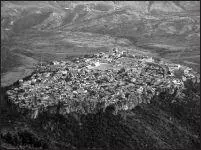
Amadia
120. The case of a person who was passing behind the synagogue / Mishnah Rosh Hashanah 3:7.
120. And to Gad he said… / Genesis 33:20.
120. Gad, a troop shall overcome him… / Jacob’s blessing to the tribe of Gad in Genesis 49:19.
120. Which they took up beyond the Jordan / The tribe of Gad was settled on the eastern banks of the River Jordan (see Numbers 32:1–5).
120. Aramaic Targum / An exegetical translation of the Bible into Aramaic by Onkelos (c. 35–12 °CE). The comment appears at Genesis 49:19.
121. Jerusalem Targum / A later translation of the Bible into Aramaic of the Land of Israel, including many interpretive and homiletic passages woven into the translation.
121. Face of a lion… / Cf. Ezekiel 1:10 (the description of the Divine Chariot).
121. High praises of God… two-edged sword… / Cf. Psalms 149:6.
121. Daughters of Israel went out to dance / Cf. Mishnah Ta’anit 4:8.
122. Kavanim / As Gamzu explains, these are “a kind of flat cake which they bake on live coals,” but commentators on the story have alternatively identified Gemulah’s kavanim with the kabbalistic notion of kavanot (mystical intentions) or with some form of pagan practice.
123. I am looking at the vessel and not what it contains / Inversion of Mishnah Avot 4:20: “Said Rabbi Meir: Look not at the vessel, but at what it contains.”
124. Unto three transgressions of Israel… / Amos 2:6.
124. No man of Israel passes through this world more than two or three times… Even go through a thousand cycles of life / The discussion about the limits to the number of reincarnations of the soul is based on Tikkunei Zohar 32 (76b) and in the 16 th century Sefer HaGilgulim of R. Chaim Vital (chapter 4 at 7a).
124. He commanded it unto the thousandth generation / Psalms 105:8.
125. Georgian Quarter at the Damascus Gate / The Damascus gate is one of the main entrances to Jerusalem’s Old City, at the northwestern side of the surrounding city walls. The Georgian Quarter, known in Hebrew as the Eshel Avraham neighborhood, lies immediately outside the gate and was founded by Jewish immigrants from the country of Georgia in the 1890s.
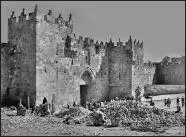
Orange sellers at Damascus Gate (1944)
Читать дальше
